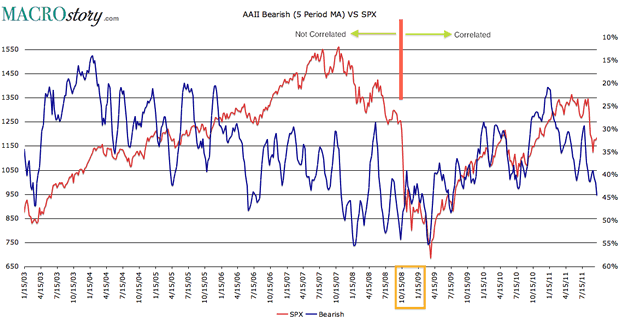Stock market arguments
A new investment architecture set to emerge. Stock markets are not as portrayed on TV, the nerve center of capitalism.

Stock markets are nothing more than tools to facilitate the exchange of stock certificates that represent contractual rights that have little to do with real ownership. Stock exchanges were originally conceived for the public interest and had a clear public purpose: The promise of a liquid secondary market lowered the cost of that equity to enterprise thereby increasing economic growth and, theoretically at least, shared prosperity.
But capital formation is only a small part of what happens on stock markets today. Yes, successful stock offerings provide the avenue for venture capitalists to recycle investments made in private markets back into new, innovative young enterprises. But it is short-term speculation in stocks, aided by the increased speed of information flow, that has grown like a cancer into a big business of little real value and now dominates stock market activity.
But many who sing the praises of market liquidity are more often than not just self-interested speculators.
Indeed, recent history has shown that our world leading liquid markets are as well the source of extreme global instability with dire and ongoing consequences. Nonetheless this trader ideology remains stubbornly at the heart of our short-term-obsessed finance capitalism which, left unchecked, surely will lead us to economic, social, and ecological collapse.
Financial returns are earned through these planned cash distributions rather than through a hoped-for sale of the stock at a higher price than originally purchased. Stakeholder interests can be truly aligned, with environmental and social, and governance values negotiated into the partnership up front.
EDI investors will want to target mature, stable, low-growth businesses, often unappreciated by growth-obsessed equity capital markets.
They will thus disprove the myth that growth at the expense of the environment or employees is the only path to adequate financial returns. The cash flows of mature, stable businesses may not exhibit the in our view often unsustainable growth characteristics equity investors have been trained to desire, but they are far more dependable sources of financial return than speculation-driven capital markets. That resiliency is what stewardship investors will value most in an increasingly uncertain future with growing resource and fiscal constraints hampering economic growth, particularly in the developed economies.
In fact, investing in mature, low growth sectors in which companies pay out rather than retain most of the cash flow they generate energy infrastructure MLPs, REITs, utilities is a proven formula for dependable, long-term investment success as the table below reveals:.
While the EDI method involves taking businesses or subsidiaries of public companies private, its returns to the investor are not conditional on sales. It thus differs significantly in approach and intention from conventional highly leveraged and therefore less resilient, exit-driven private equity with its excessive fees. Can EDI be scaled up as an alternative vehicle for investment in large, mature businesses of the mainstream developed economies, while also providing a more effective way to embed ESG values into their investments and the economy in aggregate?
It will require a fresh look with a critical eye at the failed promise of modern portfolio theory, and the self-serving interests of our short-term-driven Wall Street trading paradigm.
CAPITAL INSTITUTE about us about us team our board Research Alliance RARE Contact Us. Evergreen Direct Investing The Third Millennium 3ME Financial Reform A Year in the Life of a Regenerative Bank.
Access to this page has been denied.
Archives Library media room Newsletter Archives Papers External Thought Pieces Internal. THE FUTURE OF FINANCE BLOG Popular Posts From Paris to Drawdown March for Science — Really? Shifting From Parts to Patterns Hell No!
Error (Forbidden)
Broken Trust Topics Adam Smith Advanced Manufacturing Ammon Bundy Anthropocene Archives Biomimicry Capitalism Carbon Carbon Bubble Carbon Tax Casse City States Climate Change Columbia University Commodities Communism Competition Complexity Congress COP21 Derivatives Divestment Donald Trump Ecological Boundaries Ecological Economics Ecological Footprint Ecological Overshoot Efficiency Encyclical Energy Efficiency Energy Network Science Energy Transition Enlightenment Evergreen Direct Investing fast track Financial Crisis Financial Overshoot Financial Reform Financial Stewardship Financial Transactions Tax Fiscal Cliff Fossil Fuels free enterprise Free Trade Future of Finance GDP Global Warming Goldman Sachs Gross National Happiness Harvard University Hedge Fund Herman Daly High-Frequency Trading Hillary Clinton holistic Hurricane Sandy Impact Investing Inequality INET interconnected crises Investor-State Dispute Settlement invisible hand ISDS Jeffrey Sachs John Paulson JPMorgan Keystone XL Laws of Thermodynamics Limits to Growth Limits to Investment London Whale Marxism neoliberal economic ideology new economics Planetary Boundaries Pope Francis reductionism Regenerative Capitalism Regenerative Economics Regenerative Economy Reinvestment Renewable Energy right relationship SEC Securities and Exchange Commission Slow Movement socialism Stranded Assets Systems Design Terrorism the golden rule Too Big to Fail TPP Trans-Atlantic Trade and Investment Partnership trans-pacific partnership TTIP Wall Street wealth of nations Archives June May April February January December November September July June May April February January December November October September August June May March February December November October September August July May April March February January December November October August July May April March February January November October September August July June May April March February January December November October September August July June May April March February January December November October September August July June May April Archive Articles December A new investment architecture set to emerge By John Fullerton and Tim MacDonald Stock markets are not as portrayed on TV, the nerve center of capitalism.
Six reasons combine to make our equity capital markets no longer fit for purpose: In fact, investing in mature, low growth sectors in which companies pay out rather than retain most of the cash flow they generate energy infrastructure MLPs, REITs, utilities is a proven formula for dependable, long-term investment success as the table below reveals: This is the great promise of Evergreen Direct Investing.
JOIN MAILING LIST Email Address.